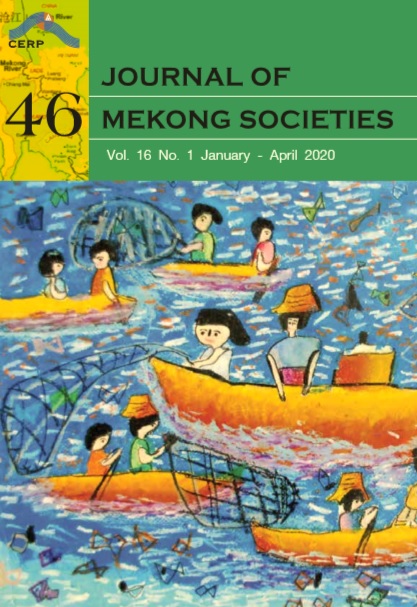Rural Restructuring and Democratization in the Northeast of Thailand
Main Article Content
Abstract
Economic change and rural transformation have affected the political viewpoints, perceptions, and ideologies of people in rural areas. Thai society for the last nine decades has become increasingly democratized, yet questions have been raised over whether democratization really emerges and develops in rural areas. The present article is based on research on the relationship between restructuring and democratization in rural areas in the northeastern region of Thailand. The study employed the historical qualitative research approach. Chorakhe subdistrict in Nong Ruea district of Khon Kaen province was selected as a case study. In-depth interviews, group discussions, and observation were used to collect data. The research examined the situation in three eras and found that rural restructuring has affected power relations and political viewpoints and perceptions of rural people. At present, rural people have become energetic about direct political participation, and not just participation via their elected representatives. The research also indicates that the more democratized a rural society becomes, the more individualistic its members are. Individualism and the resulting decreased tolerance have led to more conflicts within rural society, even in long-established and once-cohesive communities.


